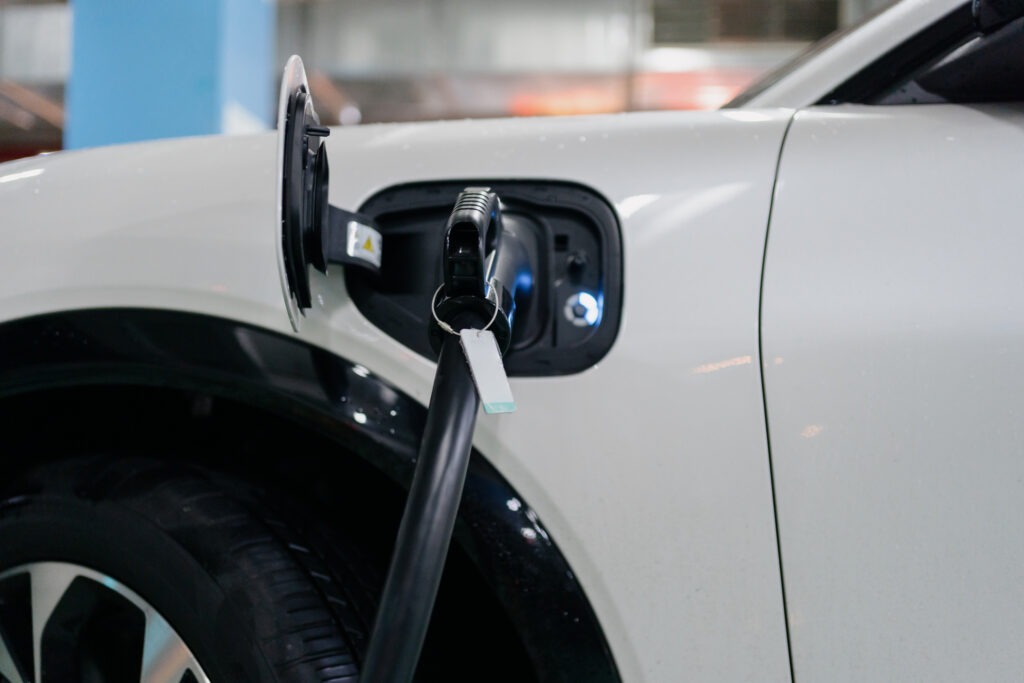BEVs struggle in global EV market during February
15 April 2024

While global electric vehicle (EV) registrations improved in February, the market was impacted by a slowdown in China. José Pontes, data director at EV Volumes (part of J.D. Power), analyses the numbers with Autovista24 special content editor Phil Curry.
Global combined registrations of battery-electric vehicles (BEVs) and plug-in hybrids (PHEVs) improved by 3% in February, compared to the same month last year. Around 830,000 EV deliveries were made around the world, representing 13% of the overall automotive market.
However, BEV registrations declined year on year, with a 6% fall. This is likely due to Chinese New Year celebrations, which occurred in February and disrupted the biggest market for the technology. This meant that BEVs alone accounted for 8% of global passenger-car deliveries.
Despite the drop, BEVs still made up the majority of the new EV market, accounting for 64% of all deliveries. This performance has brought its year-to-date tally to 63%, with PHEVs taking the remaining 37%.
Tesla takes advantage
The slowdown in China meant domestic deliveries suffered. This allowed Tesla, with its larger global footprint, to steal a march on its rivals. The brand took the top two spots in February’s best-seller list.
The Tesla Model Y once again secured first place, thanks to 78,119 registrations. This was more than double the tally of the second-place Model 3, which secured 37,901 units in the month.
Although the Chinese New Year hurt deliveries, BYD still managed to place seven models in the top 20 table. Rounding out the top three was the BYD Qin Plus, with its BEV and PHEV versions taking a combined 31,482 registrations. This was just 860 units ahead of the BYD Song (30,622 units). This meant the top two brands locked out the first four places in the February chart.
Fifth place was held by the Huawei-backed Aito M7. This model has proven surprisingly popular so far this year, able to run at the same pace as both Tesla and BYD. It even led the full-size category in February. Its 21,083 units put it firmly ahead of its rivals, the Li Auto L7 (11th with 8,459 units) and the BYD Han (13th with 7,953 units).
Legacy brands benefit
Other brands were also able to take advantage of the Chinese New Year impact, taking improved positions in February. Volkswagen (VW) was one such benefactor. Its two leading BEVs, the VW ID.4 (8,640 units) and VW ID.3 (6,494 units) finished in 10th and 17th respectively. The latter was just 101 units ahead of its VW Group stablemate, the Audi Q4 e-Tron, which finished the month in 18th with 6,393 units.
Stellantis also benefitted, with its Jeep Wrangler PHEV making it to 16th, thanks to 6,841 deliveries. MG also fared well, despite being owned by China-based SAIC. With a strong export market, the MG4/Mulan finished the month in 14th with 7,760 registrations.
One of the biggest surprises in February was the performance of the Chery Fengyun A8 PHEV, which took 20th, despite the China disruption. Chery is not known for its EV sedans, and the model is only in its second month on the market. It will be interesting to see whether this performance can be replicated in the months ahead.
BYD loses ground
As February is only the second month of the year, there were few changes within the top three of the year-to-date chart. The Tesla Model Y continued to lead with 154,328 registrations, while the BYD Song held second place.
The Song lost ground to Tesla in February. With 82,319 deliveries in the year to date, the Chinese EV was far behind the Model Y, as the US BEV took advantage of the disruption in the month.
In third, the Tesla Model 3 also benefitted from the BYD Song’s sub-par figures in February. The US model now sits just under 9,000 units behind its rival, with a global total of 73,534 units in the first two months of the year.
The BYD Qin Plus (59,917 units) overtook the Aito M7 (51,080 units) for fourth place, thanks to a stronger performance in February. Its crossover sibling, the BYD Yuan Plus/Atto 3 (37,810 units) overtook its stablemate, the BYD Dolphin (35,928 units) for seventh.
Li Auto also saw two of its models climb the table. The L7 moved up to 10th with 21,802 units, while the L9 entered the chart for the first time this year. It took 19th with 15,098 units across the first two months of 2024.
Thanks to the slower month in China, VW saw cause for optimism. Its ID.4 (18,487 units) and ID.3 (16,144 units) both jumped two positions, into 14th place and 16th respectively.
Brands battle it out
Despite BYD’s poorer performance, the carmaker just held off its primary challenger to take the top spot in February’s brand table. The Chinese company benefitted from having more models available, and registered 121,748 units globally, compared to Tesla’s 121,053 deliveries.
However, this closeness may have shaken BYD, which is reducing the price of its vehicles to increase sales, reducing competition from internal-combustion engine models. The slowdown in Chinese registrations is likely to have impacted deliveries for the domestic brand, but the battle between the top two will be one to watch in the coming months.
Below the top two, Wuling edged out BMW to take third, thanks to its 33,679 deliveries. This was just 155 units ahead of its German competitor, which gained 33,524 registrations, despite not featuring a model in the EV top 20 in the month.
Several legacy brands benefitted from the Chinese New Year disruption. VW ended February in eighth with 21,998 units, while Kia took 12th, thanks to 17,008 deliveries.
Jeep ended the month in 14th (14,867 units), thanks to a run on its Wrangler PHEV and Grand Cherokee PHEV. Toyota took 15th in the brand table for the month (14,861 units), while Ford (17th with 12,657 units) also performed well.
Two months in
In the year-to-date brand table, BYD continued to hold a healthy lead over Tesla. With 317,159 registrations, it was significantly ahead of the US brand’s 237,936 units across the first two months of the year.
The fight for the top spot is clearly between BYD and Tesla, which were responsible for almost a third of EV sales in the first two months of the year. Third-place BMW is some way back, registering 73,027 EVs so far in 2024.
BMW and Wuling benefitted from Geely’s slow month, with each climbing one position. Wuling recorded 71,535 EV deliveries, while Geely lost ground at 63,612 units in the year to date.
Aito’s rise also continued, climbing to sixth place (60,916 units). The brand could go further in March, especially with the current production ramp-up of its flagship M9 model. Mercedes-Benz was up in the year-to-date chart, taking seventh with 52,955 units. Volvo (43,250 units) and Audi (39,523 units) also climbed positions, to 10th and 12th respectively.
The legacy brand recovery is also visible in the second half of the year-to-date table. Kia rose to 15th (34,383 units), immediately followed by Toyota in 16th (30,283 units), Jeep in 17th (27,947 units) and Hyundai in 18th (25,878 units).
BYD leads the market
Looking at the EV market by OEM share (with brands brought together under their parent companies), BYD led the way between January and February. However, its share of 17.3% was down on the 19.8% it held in January, highlighting its slower February. Tesla improved its hold, with 12.4% at the end of February, a rise from the 10.7% share it took in January.
Third place was still in the hands of Geely-Volvo, although the OEM also lost share in February. The carmaker held 8.3% of the market at the end of the month, down from the 9.7% it recorded in January.
Meanwhile, both fourth-place VW Group (6.5%, up from 6.2%) and fifth-place SAIC (6.4%, up from 6.1%) saw improvements month on month.
Below, Stellantis (4.4%, up from 3.7%) recovered sixth, with a comfortable distance over seventh-place BMW Group (4%). The German OEM surpassed Changan in February recovering its usual position in the chart.
Tesla still leads BEV market
Taking the BEV market alone, Tesla remained in the lead with 19.8%, up from 17.6% in January. The US carmaker held a comfortable lead over BYD (14.5%), making it unlikely that the Chinese brand will be able to challenge in the near future.
There was a position change in February, with SAIC (7.7%) surpassing Geely–Volvo (7.7%, down from 8.3%), for third place
VW Group came fifth, with 6.9%. The German OEM is looking to reach the two carmakers ahead of it but still has work to do. It does, however, sit comfortably ahead of sixth-placed BMW Group (4.4%).



